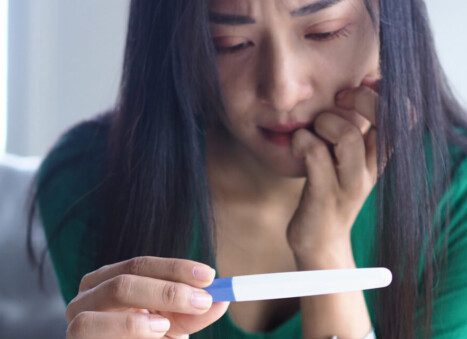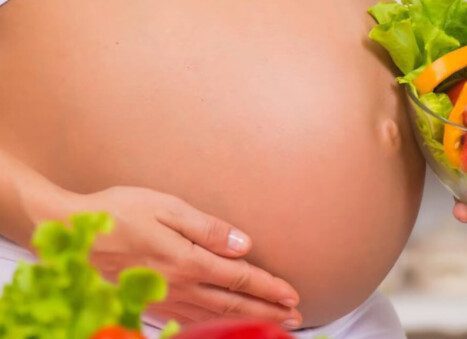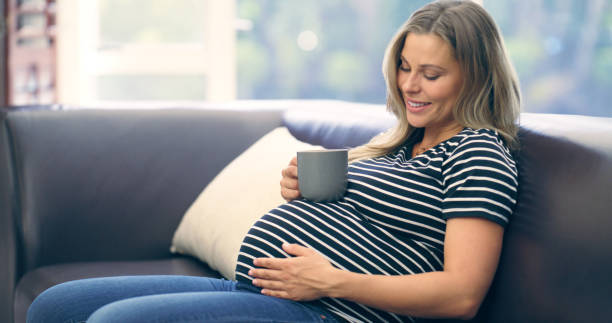
Caffeine Pregnancy Myth: A Friend Or A Foe?
Pregnancy is surrounded by myths all over. These myths are certainly responsible for creating fear and chaos, especially in first-time mamas. Pregnancy in itself is a scary time. Growing a life inside your body is not something to be taken lightly. Amongst the chaos, myths that are not backed by actual facts create a sense of fear and worry in first-time mothers. One such, is the all-time popular – caffeine pregnancy myth.
Consumption of caffeine during pregnancy has been questioned for a long time. People all over believe that it is extremely harmful for pregnant women to consume anything fairly related to caffeine. But is it really the case?
When it comes to the infamous caffeine pregnancy myth, there is still a lot of accuracy needed to come to a solid conclusion. So, it is still unknown if you should actually cut down on your entire caffeine consumption for those nine.
However, it is safe to limit the quantity that you consume when you are pregnant. The preferable quantity of caffeine for pregnant women is no more than 200 mg a day.
So, if you want to learn more about the caffeine pregnancy myth and break the false ones, stay till the end of the article as we unveil all the caffeine myths that desperately need to go away.
How Can Caffeine Affect The Mother And The Baby?
Caffeine, as you may already know, increases your blood pressure and heart rate. It also increases the quantity of urine the body makes. Feeling jittery, loss of sleep, and indigestion are some of the most prominent symptoms of caffeine consumption.
But, when it comes to pregnant women, caffeine consumption is particularly unadvised because your body takes longer to wash it off from your system. It is one of the reasons why women tend to feel lightheaded and nauseous.
Also, drinking caffeine during pregnancy may result in the drug passing into the placenta and right to your baby.

As a pregnant woman, you must have heard about the consequences of drinking caffeine during pregnancy, like – premature birth, low birth weight, or miscarriage. While some of these facts are true, some are not. So, you need to be very well informed and aware about what to believe and what not to.
Until there is solid evidence that the consumption of caffeine causes pregnancy complications, it is best to limit your caffeine intake to stay away from any unwanted trouble.
What Foods And Drinks Have Caffeine In Them?
If you thought only your regular cup of coffee contains caffeine in it, you are wrong. There are other sources of caffeine, too, that you very unknowingly consume every day.
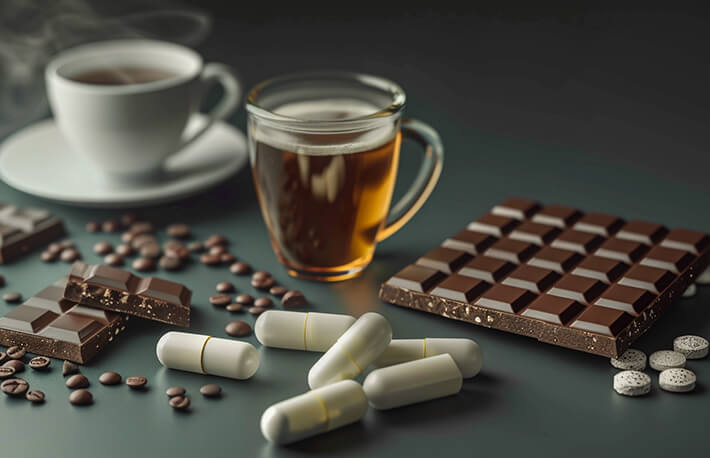
It is important for you to know about these caffeine sources to limit your caffeine intake on an everyday basis during pregnancy.
- Coffee and every coffee-flavored product
- Certain soft drinks
- Tea
- Chocolate and some of its products like hot cocoa or chocolate syrup
- Energy drinks
- Some medicines
However, the amount of caffeine in each of these foods or drinks may vary from one situation to the other. For tea and coffee, the caffeine content may depend on the following reasons:
- The brand
- It’s making
- The types of leaves or beans used
- The way it is being served
- Size of the cup. Coffee or tea cups come in different sizes. So, even when you think you are drinking the same amount, you are not. It is better to check the size of the cup to know the coffee measurement that would fit in it.
Energy drinks have some ingredients other than just caffeine, which are yet to be known. Other than caffeine, energy drinks are also pretty high in sugar. So, it is better to avoid them all the way through the pregnancy.
Caffeine Pregnancy Myth: Friends Or Foes?
Now that you know all the basics about consuming caffeine during pregnancy, let us now break down some of the most popular caffeine pregnancy myths. This way, you will know which ones to believe and which ones not.
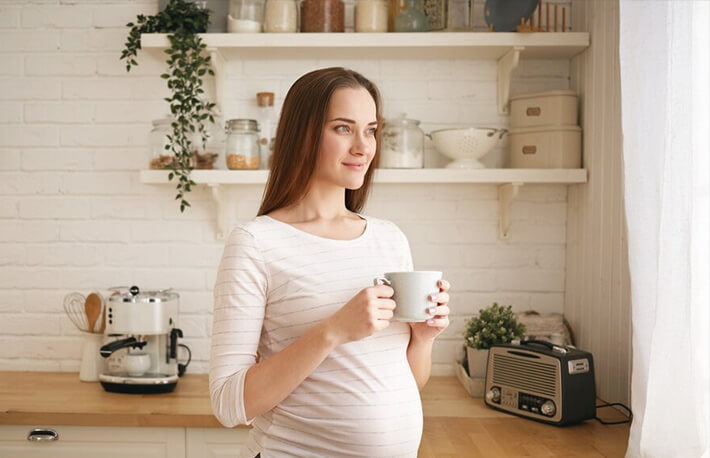
You Should Not Drink Coffee While Pregnant
While this is a myth, there are limits applicable to this one. If someone has ever told you that you should not drink any caffeine products during pregnancy, they are only halfway correct. While it is actually better to cut down on caffeine consumption altogether, you can still enjoy one cup of coffee on an everyday basis.
The reason why most people ask you to limit your caffeine consumption is because caffeine after all, is a drug. Anything the mother consumes eventually enters the bloodstream and moves down to the placenta and finally to the baby. Unknown substances entering the placenta may have adverse effects on the health of the growing fetus. Because there is not enough research done on the effects of caffeine on the mother or the baby, people suggest cutting it down to be on the safe side.
Caffeine Can Cause Complications
This is most likely a fact but is only applicable when consumed in high amounts. The biggest reason why a pregnant woman deliberately quits drinking coffee during pregnancy is to avoid complications during the rest of the nine months. However, the good news is that sticking to just one cup is considered safe. Safety concerns arise when daily consumption exceeds one cup.
Every Coffee Is The Same
This is one of the biggest myths out there. If you ever hear someone telling you that every coffee is the same, just walk away as soon as you can. While it is indeed preferable for pregnant women to drink a cup of coffee a day, what really matters is the coffee that they are drinking. Every coffee is made differently. Therefore, their caffeine content is also different.
The best way to have a look into this is by reading through the composition list and seeing how much caffeine each of the brands put in their coffee packets. Choose the one that has the lowest caffeine content to make sure you are taking in the least amount of caffeine in your body.
Pregnancy Makes Caffeine Metabolize Slower
This is indeed a fact. One of the biggest reasons why caffeine is notorious to have an impact on the fetus is because it remains in your body way more when you are pregnant. It becomes difficult for pregnant women to wash off the caffeine from their system due to a slower metabolism. Caffeine has a 1.5 – 3.5 more half-life in pregnant women. Half-life is the time the drug takes to break down to half of its starting dose. So, because it takes longer than usual to remove caffeine, it can easily have more potential side effects for the baby.
Decaf Is 100 Percent Safe During Pregnancy
This is yet another myth that needs to be broken for pregnant women. When you give up coffee, you might think it is better to make yourself a glass of decaf. However, decaf still has caffeine in it. Only, the quantity is less. So, even when you can drink a bit more of your decaf than regular coffee, you still need to check on the quantity you’re drinking every day. Decaf can add up and have adverse effects on the baby, too.
Tea Is Okay During Pregnancy
Just like decaf, it is safer to drink tea during pregnancy. But then again, you need to keep a check on your limits.

Tea primarily does not have as much caffeine as coffee, but the content may vary depending on the brand, and it can add up if consumed more than the said limit. Also, when it comes to tea, there is one thing that you need to keep in mind, which has no relation to the caffeine content in it-
Tea has many variants, some of which come with many herbs in them. Some of these herbs are absolutely unsafe for consumption during pregnancy. For instance, you need to avoid tea brands that add juniper berries, chamomile, buckthorn bark, etc, in their tea composition.
Caffeine Might Have A Long-Term Effect On The Baby
There is still an active debate on this myth as there are no solid proofs against the consumption of caffeine for the fetus.

While it is difficult to imagine that coffee might affect the growth and development of the child, it is a possibility. A study from The Netherlands claimed that high intake of caffeine during pregnancy was associated with a high body mass index and total body fat when it comes to children.
Another study in 2020 concluded that when the same experiment was done on mice, caffeine triggered cardiometabolic defects in the babies and the offspring of future generations. While this may sound dangerous, it is pretty unclear if the effect would be the same in human babies. While more research needs to be generated on the said topic, it is better to limit caffeine consumption to save the baby from any long-term harm.
Caffeine In Other Products Is Fine

Most of the research about the consumption of coffee during pregnancy is not subject to the coffee itself. The concerns are more on the presence of caffeine in it. And, speaking of caffeine, it is not just there in coffee. Caffeine is available and abundant in tea, certain medications, and energy drinks. There are also chocolate and other coffee-flavored drinks. To break the bubble, it is present in high quantities in sodas and carbonated drinks.
So, caffeine in any other product is just as harmful as it is in coffee. Before you consume any product that has caffeine in it, it is better to check the label for the caffeine content in it.
Chicory Is A Good Coffee Alternative
When you look for coffee alternatives, chicory coffee is the most popular as it has the same texture and flavor as coffee. However, as per research, chicory has a high chance of stimulating menstrual bleeding and triggering miscarriage.
There Is No Limit To Natural Caffeine Sources
This is a myth that you need to avoid under all circumstances. When you are trying to avoid coffee altogether or cut down on consumption, natural caffeine sources come up at the top. I mean, you still need your regular dose of energy, right? And natural sources of caffeine are not as bad, right? WRONG!!
Even the most natural sources of caffeine add up to the daily caffeine consumption limit in pregnant women. This does not imply that you should eliminate your caffeine consumption every day. But, it is better to reduce it as much as you can to be on the safe side.
Coffee Has Adverse Effects That Do Not Relate To Pregnancy

Most people these days suffer from a coffee addiction, and giving up on it might suck. To help you stay firm on your decision, here are some negative side effects of coffee on your health – pregnant or not:
- Anxiety
- Sleep problems
- Caffeine addiction
- Digestive issues
- Increased heart rate
- Fatigue
- Increased blood pressure
Drinking Extra Water Allows You To Drink Extra Coffee
Some people believe that drinking more water helps flush out coffee from their system. This is a myth. While there is not enough proof to justify why you should eliminate caffeine from your pregnancy diet, blood pressure is one of the most common guesses. Coffee increases your blood pressure, which is the most common complication during pregnancy.
You Should Track Your Caffeine Intake
Tracking your caffeine intake during pregnancy is a must to keep a note of the amount of caffeine you are consuming every day. This way, you can ensure you do not cross your everyday limit and remain safe with your caffeine habits.
The Bottom Line
We are in an age where surviving without caffeine seems impossible. Our everyday life and activities depend on the coffee we consume. But pregnancy is that time in a woman’s life when she needs to keep a lot of things in check that were otherwise normal in her daily life.
Keeping a limit on your caffeine consumption would only benefit you and the baby inside. While caffeine pregnancy myths are many, and people choose to believe them, they are not all credible. Some of them have factual back-ups, while others are just baseless thoughts that are now myths.
It is better not to believe any of them and to make your own decisions by limiting your everyday caffeine intake or just cutting it down by your choice. Myths are myths for a reason. You take the relevant part out of it and take the factual information out for your own good.
MORE FOR YOU:
Already have an account?
Sign In
Create your account
User added successfully. Log in








